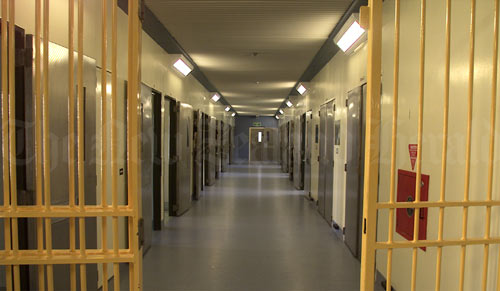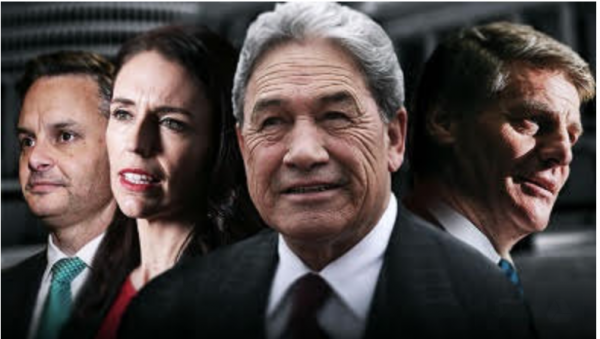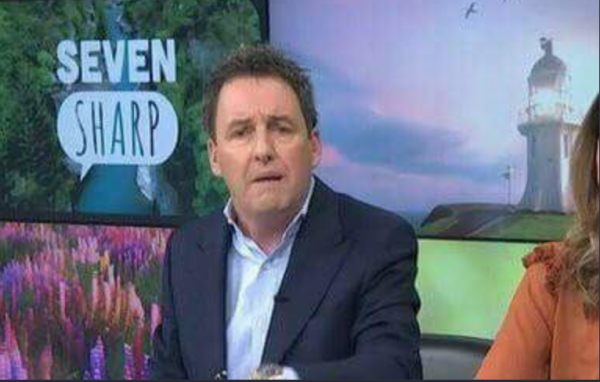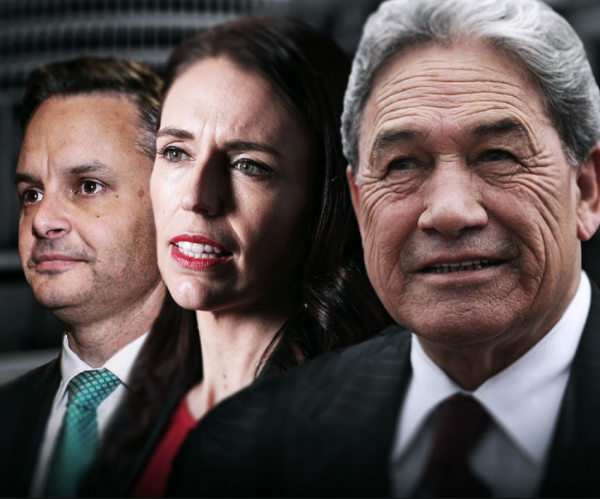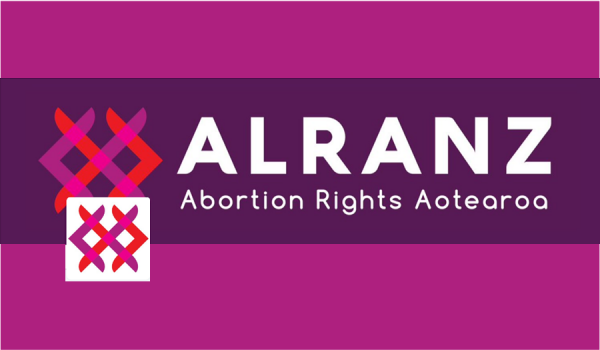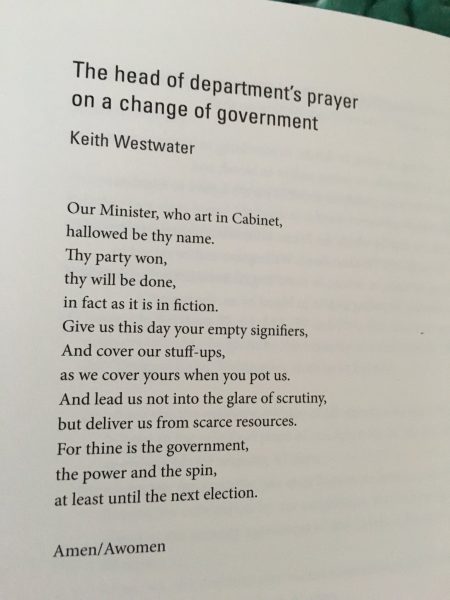
The new government got off to a pretty good start – indeed a few minutes before it was announced – when Winston Peters indicated that its mission is no less than to humanise capitalism in New Zealand. This reminds us that Winston Peters is by far the most qualified person in this government to be Minister of Finance, and that it’s Finance Ministers that make or break governments.
The ‘make’ scenario is an exciting one; a programme to move on from neoliberalism without waiting for a new ‘great depression’ to precipitate such progress. Forward-looking people have to get behind that ambition, and not to undermine it by bringing austerity politics or identity politics to the fore.
On the ‘break’ scenario, we need to note that voters desert composite governments’ support parties. So, if Labour proves to be a weak link in the new government, it’s likely that both New Zealand First and Green will be ejected from Parliament in 2020, leaving only Labour and National and Seymour in parliament after 2020. That would be a very sad outcome for a country that has proved it likes to have genuinely independent parties in the Parliamentary mix (though not necessarily ‘at the table’). While few people voted for the independent Māori Party, many people regretted its passing.
In the United Kingdom in 2015, an unpopular Conservative-LiberalDemocrat government was replaced by a Conservative (Tory) government with a Parliamentary majority. The LibDems were punished (and the Tories rewarded) for the failings of the Tories.
National, under its veneer of acceptance, is quite bitter. Bill English noted that ‘only MMP’ could deny a 44% party the right to rule. Well National got 44% in 1987 and in 1957, and they were not able to rule in those pre-MMP years. In 1946 they even lost with 48% of the vote (but possibly only because the Labour government had removed the country quota). Labour also missed out on a number of occasions with 44% or more of the vote. We should never allow ourselves to believe that 44% is a mandate to rule.
Chris Trotter has varied in his views, from seeing a Labour government today as being a forerunner to a great Labour government in 2020, to showing concern about Labour’s austerian instincts. He said, to have a ‘1938’, you must first have a ‘1935’. But the context of 2017 is quite different to that of 1935. 1935 was a post-slump election. 2017 may be a pre-slump election. Indeed Winston Peters has signalled as much.
The years we can fruitfully look back to are 1928 and 1929. 1928 was the first New Zealand election in which Labour became a party to Government. The story is not as well known as it should be.
Before going back to that story, we should note that in 1929 Labour governments were elected in the United Kingdom and in Australia. (We should also not that the Great Depression is conventionally dated as 1930-34, though its severity was different at different times in different countries.) Neither Labour government lasted full term; like the New Zealand government, both of these fractured in 1931. In both of these cases – but for different reasons – the weak link was the Minister of Finance. In the United Kingdom, Philip Snowden became the Roger Douglas of his time. In Australia, Ted Theodore was a radical populist, who ‘frightened the horses’ big-time. In Australia, after 18 months of Labour, former Labour MP Joseph Lyons (the Peter Dunne of his day) led a competent but uninspiring United Australia Party into power for the rest of that decade. Australia missed out on the reforms associated with Labour in New Zealand in 1938. In the United Kingdom, Labour Prime Minister Ramsay McDonald in 1931 led the new ‘National’ (ie united) government, this time with a moderate Tory (Neville Chamberlain) as Chancellor of the Exchequer.
In New Zealand before the 1928 election, Reform (led by Gordon Coates) was the governing conservative party and Liberal (renamed United) should have been the Opposition. But Liberal was falling apart, and Labour leader Harry Holland (a traditional socialist) was Leader of the Opposition. Liberal, led in 1925 by George Forbes, had been a lacklustre opponent to Reform and reform. Liberal ‘reinvented’ itself in 1927 by bringing back Joseph Ward (who had first been Finance Minister in 1893). New Zealand had had an early pre-depression depression in 1926 and 1927; voters were disillusioned with the Coates government.
Ward excited the electorate on the hustings in 1928, by promising a £70 million public works loan. (The story is that it was meant to be £7 million, but that Ward misread his speech notes. Thus Joseph Ward invented what the world now knows as Abenomics; governments must act as borrowers of last resort, and substantially so if necessary.) The hitherto moribund Liberal (United) party increased its vote from 21% to 30%. And, under ‘First Past the Post’, the seats rolled in. United (30% of the vote) got one more seat than Reform (36% of the vote). (In 1919, when the voter percentages were very similar, Reform had vastly more seats. FPP indeed was a lottery.) United ‘won’ the election, and formed a government with Labour support on confidence and supply. Actually, 1929 wasn’t a bad year for New Zealand; the pre-depression depression was over.
The United and Labour match had been under strain however; United was more conservative than it had been in its Liberal heyday. Ward – not in good health – resigned as Prime Minister in May 1930. The rest of that party were conservative nobodies. The United-Labour ‘coalition’ (small-c) died in 1931, having lasted more than two years. It was replaced in mid-1931 by a United-Reform arrangement, with recycled United leader Forbes assuming the Prime Ministership. Forbes contested three elections as party leader. His party came third in all three (1925, 1931 and 1935).
In the 1931 election, Labour got more votes than any of the other parties (34%). But United and Reform had made electoral accommodations for each other. They went to the people as a Coalition (big-C); thus, they won. Forbes, having been Prime Minister for six months, was ‘re-elected’ as such, despite his party coming third in both votes and seats. (In mid-1931, Forbes also inherited Ward’s second role, Minister of Finance. So, in New Zealand as in Australia and United Kingdom in 1931, a Finance Minister – this time an incompetent one – broke a Labour-participating Government.) Forbes would continue as Prime Minister until 1935, even postponing the 1934 election by a year, ostensibly on account of the economic ’emergency’.
Winston Peters cannot be compared to George Forbes. Rather, although Peters has never been Prime Minister, he is a similar political character to Joseph Ward. Indeed Peters is the same age in 2017 that Ward was in 1928. The newly formed government now, in 2017, gives similar hope to basically the same sections of people as the new 1928 government did. Let’s hope that the end story this time will be more positive. The good news is that Peters’ health is clearly much better than Ward’s was.
Progressive governments have to be progressive to survive. And they have to reach out to constituencies much wider than their voter base. Ward had that reach, to some extent. Michael Joseph Savage had it, much more so. Harry Holland, Labour’s leader in 1928 and 1931, did not.
Juan and Evita Peron, in Argentina, also had ambition and reach. Elsewhere I have called New Zealand’s new government the “Peronista” option. The Perons burned out in the early 1950s; more excess than success. Like Ward, they made a comeback (Juan and Isabella Peron in the 1970s). Like Ward. I guess all will not be lost if his first stint in real power comes to a sudden halt. (Ward was personally bankrupt in 1896, and, as a result, resigned as Finance Minister. He got back up.)
If things turn really pear-shape for Jacinda Ardern in 2020 (or sooner) she could always make a comeback in 2051 (or even 2066 if Generation-Y women really do have the projected life-expectancy that some of our demographers claim) after many years in the political wilderness. In 2051 she will be younger than Winston Peters is today.
Let the interesting times begin.



